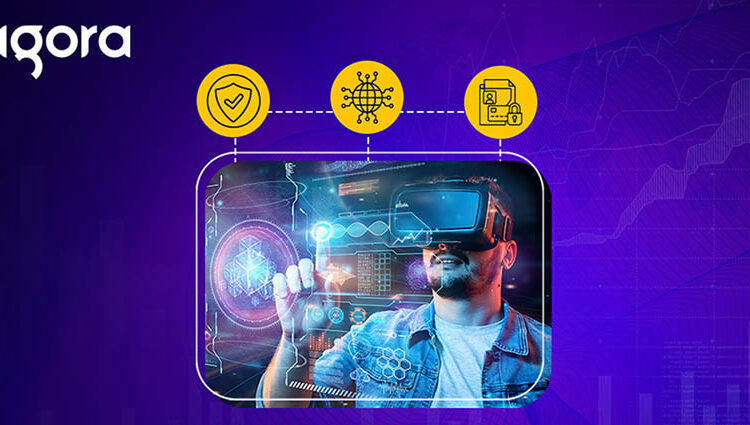Debates on Metaverse ethics have reached headlines across global media, namely amid the rise of major tech firms such as Meta Platforms and Microsoft, who aim to protect online users from harmful content.
Cybersecurity will also become a major vertical for the industry as sensitive use cases, users, data, and immersive experiences will demand stronger encryption and protection from attacks.
XR Today interviewed Hermes Frangoudis, Director of Developer Relations for Agora, on the cybersecurity risks the tech industry is expected to face as it builds Web3 and the Metaverse.
According to a recent survey published by the firm, 33 percent of respondents said data privacy and security were the biggest challenges to the Metaverse.
Agora’s solutions, which include video and voice calling, messaging, and several key software developer kits (SDKs), also integrate on Unity Technologies’ real-time 3D (RT3D) world-building platform.
XR Today: Can you explain your company’s policy on Metaverse cybersecurity and privacy, and where your security experts will focus their efforts?
Hermes Frangoudis: Agora’s ethos is centered around providing the underlying infrastructure for real-time digital engagement. Our focus on infrastructure has security in mind every step of the way, to ensure that our network is secure from malicious actors.
Aside from protecting ourselves, our company also provides developers with the tools they need to protect themselves and their users from cyber security and data privacy perspectives. We also support token authentication that allows developers to set their encryption mode and keys and own the authentication of users.
Agora also enables developers to respect privacy laws and control the flow of data through geo-fencing and enables developers to pass some levels of privacy on to their users, as well by supporting dynamic passwords on channels, so users can set the key for their communication.
XR Today: It is widely believed that cybersecurity is only as effective as its end-user. How can XR users protect themselves with devices that, currently, have a low rate of cybersecurity attacks compared to top global operating systems?
Hermes Frangoudis: It is tough to put the entire onus on the end-user when spyware like Pegasus exists. To start, I think end-users also should not be afraid to factory reset their headsets every so often in the same way you can a phone—most headsets use Android as their base OS—to ensure that any hacks or data leaks are reset and removed.
PHOTO: Agora Inc
At the end of the day, it is a combination of efforts across the headset manufacturers, operating systems creators, and software developers to minimize vulnerabilities, but the end-user must keep themselves educated as to the exploits in the market and do their best to avoid malicious sites and apps.
XR Today: Why is gaming the leading vertical for the Metaverse, and what are your thoughts on ‘serious gaming,’ a term for current gaming technologies leading to future Metaverse infrastructure?
Hermes Frangoudis: The video game industry is at the forefront of metaverse technologies because it’s had the most time to establish and iterate on the core mechanics of digital life.
Though gaming has had the most time to mature, now other industries are adopting immersive tech like AR/VR, which rely on similar tools and concepts as gaming and are blurring the lines between non-gaming focused use-cases and game technologies.
XR Today: Do you believe that centralized or decentralized metaverse platforms are at a greater risk of cybersecurity breaches or attacks?
Hermes Frangoudis: Different systems have their own unique vulnerabilities. It is up to the software developers to anticipate the edge cases, think of all the diverse ways their platform or software could be exploited or used in unintended ways, and protect against it as best as possible.
In some cases, it is impossible to control all user actions, and that is where it becomes important to provide users with ways to protect themselves and create a way for communities to self-moderate.
For more information, kindly visit Agora’s website.

